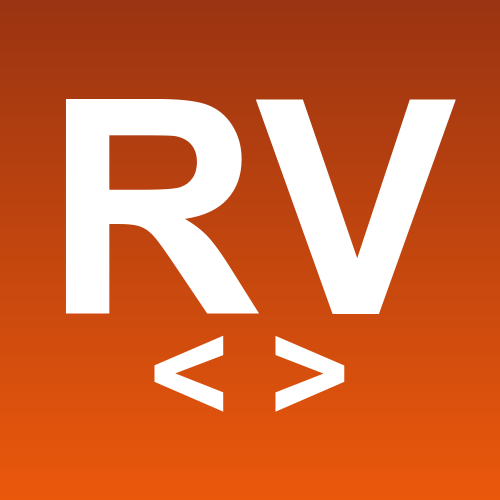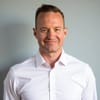From Engineer to Founder (and Beyond): The Books That Guided My Path
Books that shaped my journey—from DevOps to leadership and lifelong learning.

If you know me, you know I'm driven by continuous learning. It fuels everything I do—from building companies and mentoring founders to geeking out over cloud and AI innovation. Consequently, a book (or three!) is always close by.
Over the years, some books have done more than just inform; they've fundamentally shaped my thinking, leadership style, and approach to life. People frequently ask for recommendations—'What should I read to build a business, lead better, or sharpen my skills?'
I find myself returning to a core set of titles. These are the books that have most significantly influenced my mental models. Interestingly, I often engage with them in both audio and digital formats, as each reinforces the other, deepening the insights gained.
Building Businesses That Last
Built to Sell by John Warrilow powerfully reinforced the value of deep specialization. When Rob Daly and I co-founded Stelligent, we focused on the emerging field that became known as DevOps—which was itself a specialized area at the time. Yet, reading Warrilow's book in 2012 (on Rob's recommendation) convinced me to narrow our focus even further, concentrating Stelligent exclusively on DevOps on AWS. That hyper-focus became our superpower. It came full circle when Rob and I appeared on Warrilow’s podcast in 2019, discussing how his book prompted this crucial specialized focus.
The E-Myth Revisited by Michael E. Gerber reminds me that working on your business beats working in it. It’s easy to get caught up handling day-to-day details—but the real magic happens when you step back and build systems that run without you. Rob first suggested that I read it around 2003, and the lesson in the book still rings true.
The Pumpkin Plan by Mike Michalowicz is all about ruthless pruning. Early on, I hesitated to say “no” to any customer request. This book—and Built to Sell—taught me that turning down work outside our sweet spot serves customers better. I even started referring projects to peers who were a better fit.
Measuring, Improving, and Delivering
How to Measure Anything by Douglas W. Hubbard gave me permission to quantify intangibles—risk, happiness, innovation—even with imperfect data. The “Rule of Five” became my mantra: you don’t need every data point to make a solid call.
The Goal by Eliyahu M. Goldratt and Jeff Cox was my gateway into the Theory of Constraints. Whether in software or business, there’s always a bottleneck. I still sketch constraint maps on whiteboards when tackling difficult problems.
The Checklist Manifesto by Atul Gawande highlights the extraordinary impact of a deceptively simple tool. Its premise feels basic, yet the results are profound. I rely on checklists extensively—for code reviews and even tasks like drafting posts. They systematically clear away mental clutter, ensuring consistency and allowing focus to remain on the most critical aspects of the work.
Value Stream Mapping by Karen Martin and Mike Osterling provided a language around how to visualize an end‑to‑end workflow. Seeing where tasks stall helped align our engineers and leadership around real change.
The DevOps & Engineering Mindset
Continuous Delivery by Jez Humble and Dave Farley came out three years after my book on Continuous Integration and became the book I wanted to have written at the time: it laid out the practices and automation needed to deploy reliable software, build trust, and empower teams to innovate, explaining those concepts more clearly than any resource I’d encountered.
The Phoenix Project by Gene Kim, Kevin Behr, and George Spafford vividly illustrates core DevOps principles within an engaging narrative. I highly recommend this foundational DevOps book for anyone working to bridge IT capabilities and business goals.
Mastery, Mindset, and Personal Growth
Mindset by Carol S. Dweck fundamentally shifted my perspective on setbacks. As someone who was a mediocre student in high school and felt like I just 'couldn’t figure out school,' Dweck's book—along with Geoff Colvin’s Talent Is Overrated—drove home a crucial lesson: deliberate practice consistently beats innate talent.
Deep Work by Cal Newport gave me permission to protect distraction‑free blocks. Some of my best ideas were born in those uninterrupted stretches of time.
Learning, Sharing, and Influence
Make It Stick by Peter C. Brown, Henry L. Roediger III, and Mark A. McDaniel taught me the science of retention. I weave its insights when helping others actually remember and apply what they learn.
So Good They Can’t Ignore You yet another by Cal Newport. It challenges the passion myth: skill and mastery create passion, not the other way around. Focusing on high‑value skills has been a game‑changer in my career.
Show Your Work! by Austin Kleon validated the idea of sharing my journey—successes, failures, experiments—in public. That’s how you build trust, attract opportunities, and create a ripple effect beyond your immediate circle.
To Sell Is Human by Daniel H. Pink fundamentally redefined 'sales' for me, shifting the focus from slick persuasion to genuine service. Early in my career, watching salespeople prioritize pitches over connection made me uneasy. As I transitioned from engineer to business owner, I feared needing that same impersonal approach. Pink’s exploration of authentic selling—understanding needs and genuinely helping people move forward—revealed a much better, more human way.
Leadership and the Amazon Way
Reading Working Backwards by Colin Bryar and Bill Carr feels like holding Amazon’s playbook. I happened to read it just before starting at AWS in 2021, and its core mechanisms—from writing the press release first (PRFAQ) to deeply obsessing over customer outcomes—became foundational to my leadership approach there.
Final Thoughts
These books shaped how I work: specialize, measure, build scalable systems. They're true guides. Hope they help guide your next step.
What book changed your path? I’m always looking for the next great one.
Keep learning, keep building.

